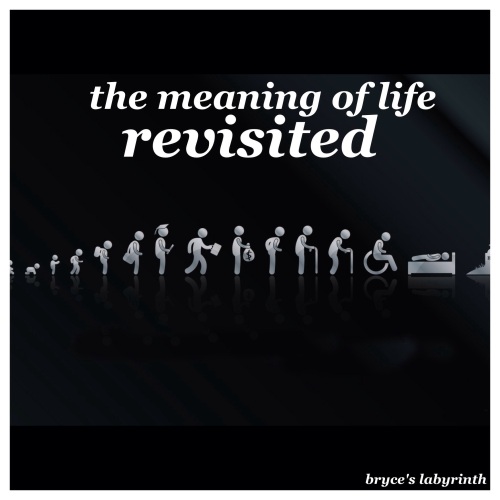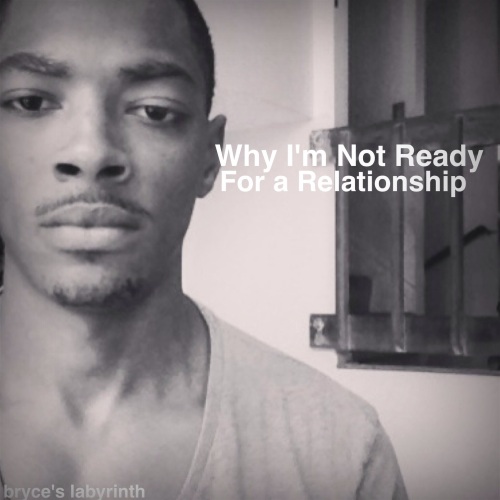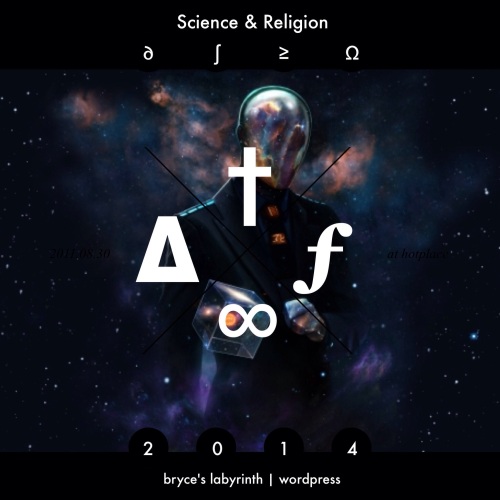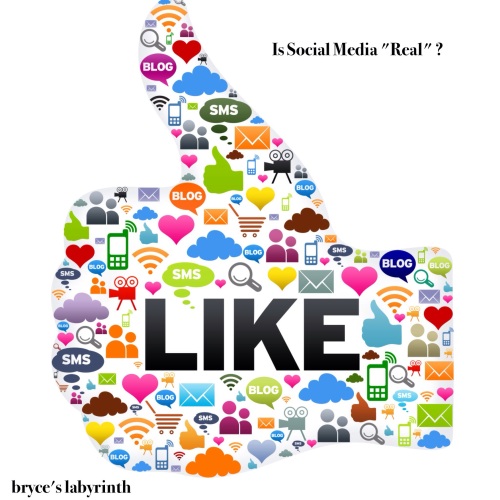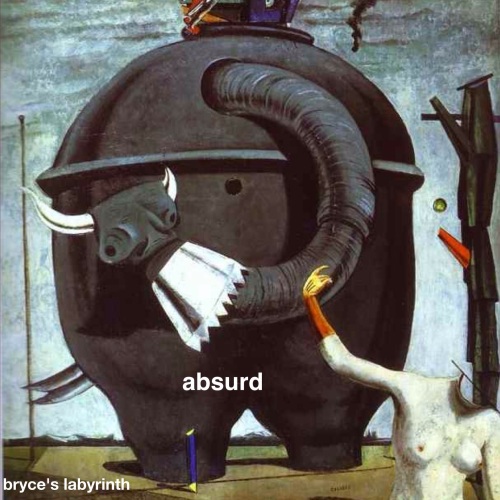“The future alters the past.”
It is not time that is an illusion, but the human condition which apprehends it. For years I was an idealist, ascribing chief status to the mind as the arbiter of reality, only to dabble in materialism, which ascribes chief status to the physical brain structures. With sufficient meditation I have rendered both of these as misnomers.
The human condition is intractably complicated because it is the subject which is attempting to apprehend itself. Therefore, it is not as simple as “observing and notating,” because something that is within the system affects the system; the observation and notation blur the lines of objective investigation. This is what many of the uncertainty theorems and their interpretations of the last century shed light upon; however, given that the last 100 years were dominated by behavioristic thinking, it would take many decades before this problem of was fully addressed.
When attempting to make sense of the human condition, many of us turn to introspection and reflection as a means of finding inner peace. While this is good in theory, the practice of such simply serves to enfold and isolate an individual from the world around them. Although many meditative practices do indeed stress a global understanding of life, the average person simply searches their psyche for meaning and understanding. Its not difficult to guess what this mode of inquiry renders: a highly subjective interpretation.
Our societies are all about socialization and interaction, so what sense does it make to only probe one’s self? Surely, introspection plays a vital role in conscious balance, however, if we wish to push forward as a species, there must be durative dialogue between people. Furthermore, the dialogue must be accompanied by all people attempting to better themselves in the world. What sense does it make if certain people are attempting to connect to those around them while others are doggedly sticking to their myopic views? What you have is nothing more than subjectiveness and anemic tolerance from one person to another. This is a good representation of the world we live in now. We know this more or less sucks.
As a method of addressing this early in 2013, I developed objective conscious modeling as a means to inspire selfless thought in my students and my consulting clients. There are four steps to the process:
1) Look at a situation as you normally would taking close note of your motivations and expected outcomes.
2) Look at the same situation from the viewpoint of someone who disagrees with you, someone you find yourself in opposition to often. This could be someone as close as your mother or an adversary from work or school. Try to objectively consider their motivations and expected outcomes as well as factoring in any influences to these. For instance, various cultural groups interpret occurrences differently.
3) Look at the situation from the viewpoint of someone close to you. More often than not, this will be a family member or close friend whose thought processes you are more or less familiar with. Again, consider their motivations and expected outcomes.
4) Look at the situation from a stranger’s eyes. At first glance, this seems impossible or at the very least implausible, however, rest assured, that it is possible with some practice. The key is to get familiar with the lifestyles of others and with the indomitable penetration of the Internet into our lives, it is very easy to see how others may view things.
These four steps provide a simplistic model for thinking outside one’s own paradigm; they are a direct affront to the run-of-the-mill subjectiveness that so many of us grow weary of. It is commonplace to hear, “well that’s just your opinion,” throughout one’s life; so, the idea is to acquaint one’s self with as many of these opinions as possible to offset the asymmetry of interpretation.
Makes sense, right? Let’s up the ante.
Everything I have just laid out exists within the domain of human reason which is acted upon by a myriad of forces from the moment one is born. Most of these forces are sensory as we grow to recognize our mother or father’s voice, learn their behaviors, and internalize those behaviors to be “true” or “right.” However, as more and more sensory information gets stored within the hard drive of the unconscious, thoughts and notions begin combining in unique ways per the parameters of that person’s psyche. Thus, a personality is born, an admixture of genetic information and social information, and the attentional or mental force, otherwise known as the conscious, begins playing its part. This is origin of subjective opinion. Because these things have accompanied someone from the instant they were born, things seem absolutely real. They may say, “this is my opinion,” but what is being implied is, “this is the truth as I see it.”
The conscious mind drives ration and reason, but it is still a product of itself, still a product of being a human. We have defined what this rationale and reason are and simply regarded it as so.
Being marked by the parameters of humanness, which can loosely be thought of as those things so familiar to a human that they are taken for granted, like creating a system of logic and believing it to be objectively logical, it should not come as a surprise to anyone that we ascribe such an elevated status to ourselves as beings. It is intuitionally obvious to everyone that we are at the apex of the Earth’s food chain and that we are the dominate species in the biosphere. Additionally, no other highly intelligent life has been revealed to the whole of mankind as being extant. Therefore, again, it is intuitionally understandable that we believe ourselves to be highly evolved.
But, that does not change the fact we’re defining things through being human! We cannot escape those things that make us human! We have sentience, we have the ability to reflect and prioritize, we have advanced language, and as aforementioned we have sat atop the global food chain, and this has provided us with a particular understanding that we hold special status and that has affected how we think. However, at no time has this necessitated that we are privy to an elect status in the universe. We are still abstracting and guessing through the human apparatus.
The human condition is an illusion simply because it is an abstraction of what life is. As a human, you possess a structure, the brain, and its processing faculties, the conscious and unconscious minds, which take on the Herculean task of organizing all the sensory information around it in a way that is meaningful and maximizes fitness. We do not see “reality.” We only see a sliver of the physical information in the universe. We don’t see X-rays or ultraviolet rays or gamma rays, we can only infer what they look like. We can’t sense what certain subsonic frequencies sound like, we can only infer what they feel like.
Thus, it is absurd, but facile, for us to talk of what the Universe is or does from within our limited context; I mean, how else could we describe it? You cannot explain what you cannot experience, this is the purest example of a causal gap. Hence why it is so damn hubristic to speak of time as the illusion! Time has existed since long before we were a thought in this macrocosm. Time is seemingly a byproduct of quantum entanglement or some of the curiosities of entropy, concepts that we are only just now understanding, yet, we have the audacity to relegate it as some manmade structure? What our ancestors did through sun dials and astrological mapping was derive a system for codifying momentary change. It is intuitively simple to understand that this moment is significantly different than one that just passed or one not here yet.
Therefore, some of the ostensible questions should involve epistemology or what can actually be known, a branch of philosophy that has an illustrious history in the learned communities but seems to languish in the spheres of the layman.
*******
When I first stumbled on the line of occurrences that led to what we now know as quantum physics I was deeply discomforted by how Einstein, Bohr, Heisenberg, and Schrodinger were making these giant leaps in such seemingly coordinated ways. This is largely different than what I intuit about the present moment; very rarely are people in tune with one another in different parts of the world, working out deeply complex issues. This naïve line of inquiry would eventually pay off. Of course these scions of academia weren’t somehow magically in tune with one another; the next few decades after Einstein’s breakthroughs would find him unsettled with quantum implications and isolated from the academic community as he searched for a unified theory.
It wasn’t until we looked back in retrospect that this continuity became apparent. What the future does is collapse all of the past into more contiguous strings of occurrence, this contiguity permits the idea of meaning to events. The present moment exists as a probability wave with a preponderant amount of information being generated. We inefficiently search for meaning and significance in the present moment (usually through the faculties of ourselves, ironically) so that we are somehow doing something purposeful. But,it is only when we look back into time that a “clear line” begins to appear. “I was meant to do this” becomes a very real “reality,” only after there are a string of occurrences, consciously perceived, which demarcate clear causal lines.
However, causality in a system as complex as human behavior is not a one-for-one cause and effect system. This is where quantum uncertainty has become so helpful. Looking at the sheer amount of information and its instantaneous collapse upon observation and organization upon retrospection, it is clear that any number of causal lines could be constructed through the scatter plot of occurrence. You are not a doctor because of one clear moment in the past, but a series of lines that converged at various points along your life track. Thus, rigid notions of meaning and purpose are unfounded, since the causal laws are probabilistic rather than strictly mechanistic.
Thus, meaning and purpose are contrivances of the human condition. They are ideas that help deal with the painful gap between the human condition and its status in an otherwise indifferent universe. We attempt to exercise control over the things we hope to have control over and reason our way through per the specifications of our mental faculties. Thus, as an ontological entity, “calling’s” don’t exist. One is not “called” to do anything. Looked at as a bit of knowledge, however, one can delude themselves to believe in a calling only by looking behind them. You can collapse your past into a coherent framework that meaningfully brought you to the here and now. However, as previously discussed, it is still an arbitrarily constructed illusion, but it is one that somewhat makes sense.
What can be the applicability for all of this?
For starters, what Objective Conscious Modeling does is force one out of rigid local thinking through which one considers only a small sliver of the contextual information closest to them. In other words, by expanding one’s cognitive horizons they are able to surmount some of the gravity of the human condition. The human condition is nothing more than a program through which life expresses itself and as such it can be rewritten and modified, but not without considerable effort on the user.
Second, much of the strife within our social communities comes from the strict insistence that life has some objective meaning which we all can tap into. I vehemently denounce this notion. There is no objective meaning to life. The meaning of life is to live within the parameters one has the blessing to define. If you choose to adhere to a particular theology or philosophy, it is well within your right, but don’t get off on the belief that you possess some unassailable truth. You possess a watered down version of the larger structure of life.
This is highly, highly undesirable for a myriad of people and this only serves to edify my ultimate point. The human condition will willingly choose boundary over vacuous freedom because at least within boundary exists quasi-objective reason, purpose, and meaning. Within a larger ideological structure is a type of abandonment of self, objectivity, and adherence to a larger communal set of rules, however, concurrent with these systems is usually nauseating arrogance. Nevertheless, it is much easier to fall in line with the reasoning of some larger structure and arbitrarily amplify it out globally, than to deny the existence of anything as wholly objective and languish in ambiguity. With rigidity is order and with order communication and interaction are possible; after all, we are a highly social species.
To bring this post full circle, this is why I started out with saying that the human condition is the illusion, its the lens that we abstract the universe through. It is highly complex because it is modular, but this modularity is our greatest ally. Imagine your mind, your brain, as the single most sophisticated piece of equipment currently known to man: that is exactly what it is. It is a computer that is self-sufficient and possesses all of the facilities to push itself into ever more effective configurations. There is danger in believing that you know anything objectively because the brain will download that as a command to cease and desist and you will flounder in your own ignorance. Not only is this problematic on a daily perspective, but severely limits one’s genetic survivability.
By understanding that the condition is the illusion, what then is the reality? If we are simply apprehending the universe through the physical apparatus and processing through the mental faculties, what then? This is where I leave it to you to work through.
So many of us possess these undeserved ideas that our notions, preferences, and proclivities are somehow more pure than the next and it is through these prejudices that we apprehend our world.
Imagine shedding those delusions, what could one achieve then?
Imagine if you let go of the illusion that there is an objective meaning to life that all people should be following. Imagine shedding the delusion that your mode of logic was supreme. Imagine if the questions you posed to nature, your Heisenberg choices, were ones of increasing objectivity, increasing global consideration; how much more could you achieve?
The humanness I spotlighted in the beginning of this post is as illusory as any of the other concepts discussed simply because it exists within the sea of time and human awareness. Thus, it is only significant at this moment and constantly poised to change instantaneously. Since a component of your conscious processes project forward into time, an evolutionary marvel might I add, it is very possible that the entire framework of your understanding will change. Your new future will re-collapse and reconfigure the lines of your past.
Imagine how amazing that would be.
bryce
